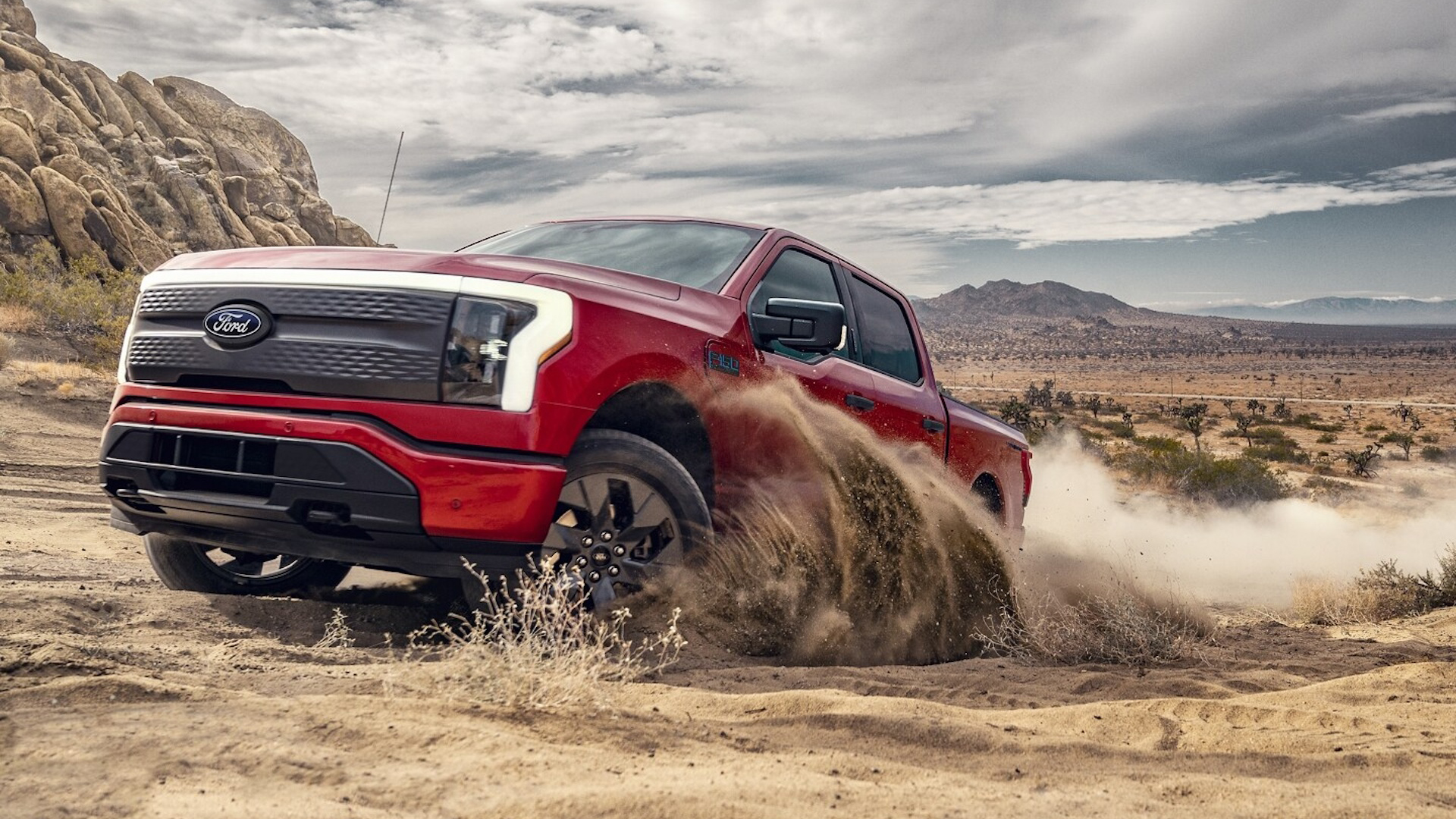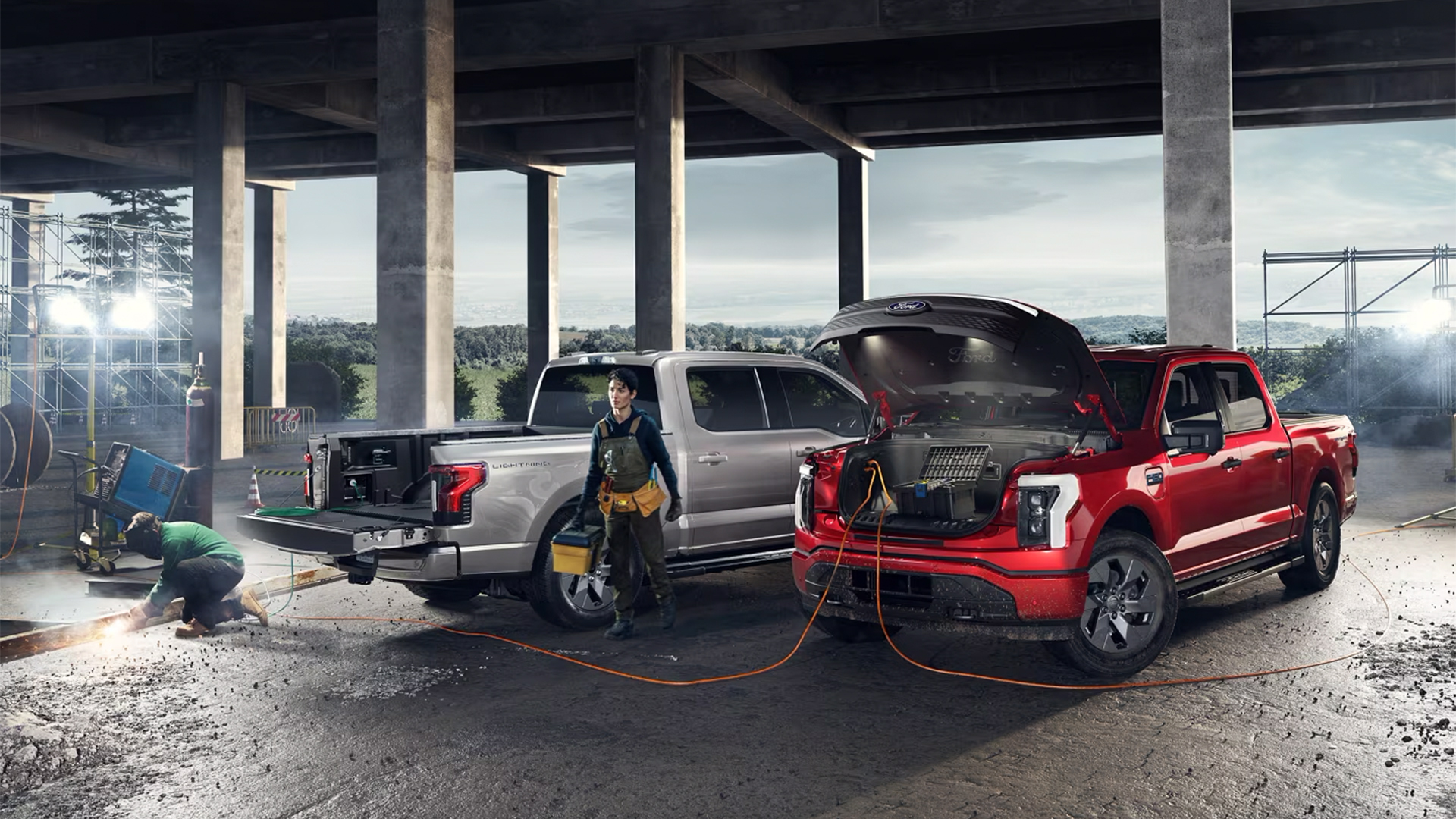Ford slams the brakes on its pure EV plans – and is taking the hybrid road instead
Company writes off $1.9bn as it cancels plans for large electric SUV

Ford is the latest major automotive player to scale back ambitious plans for future electric vehicles, stating that it has scrapped an all-electric, seven-seat SUV to rival those from Kia and Volvo, as well as delaying the successor to its F-150 Lightning electric pick-up truck until at least 2027.
The latest move comes as Ford says it would not be able to reach a profit on the large all-electric SUV in the desired timeframe, so has written the $1.9bn investment off as a loss for now.
According to the Guardian, the company cited stiff competition form Chinese rivals, as well as the slowing growth rate of EV uptake in both the United States and Europe as reasons for cutting back on future plans.
Ford said last month that its electric vehicle division had lost $2.5 billion in the first half of the year before certain expenses were taken into account.
Rather than pursuing all-electric models, the Blue Oval said it will continue to push hybrid vehicles, as demand for that powertrain technology has surged in recent months, both in Europe and the United States, as buyers appear to be hedging their bets on the future of electrification.
Part of the reason is that potential customers are all too aware that pure electric vehicles are depreciating fast – losing up to 50% of their value in just a year in some markets.
A recent investigation by Wired revealed that the Mercedes-Benz EQE apparently depreciated at around $615 a day over a 12-week period.
Sign up for breaking news, reviews, opinion, top tech deals, and more.
Analysis: Confidence rocked

The recent announcement by Ford joins a long list of gloomy forecasts surrounding the future uptake of pure EVs, especially in much of Europe and the US.
German giant the Volkswagen Group, which also owns Porsche, Seat and Skoda, recently attacked the EU’s decision to impose hefty tariffs on vehicles imported from China.
While this may help stem the flow of cheaper Chinese alternatives that are causing legacy automakers plenty of price war headaches, it is also throwing a major spanner in the works for those companies that outsourced production of certain models to China in order to reduce overheads.
VW, for example, recently entered a joint venture with JAC to manufacture its electric Cupra models in China, which could now face a 21% levy once they land on European shores. Similarly, BMW also produces its electric Mini models at a factory in Zhangjiagang alongside a local partner.
It appears the legacy automakers are still caught in a nasty Catch 22 situation, where they would welcome a more level playing field and price parity with incoming Chinese rivals, but also don’t want to sour relationships with overseas markets.
What’s more, it appears that some of the biggest Chinese brands are so advanced in their manufacturing and battery production that they can afford to swallow the proposed levies from the EU and still remain profitable.
However, in those markets where EVs are now ubiquitous (China is just one example), electric powertrains are thriving. Xiaomi, for example, raised its forecast for electric vehicle sales after smashing early sales targets for its debut model, the SU7.
You might also like
- Zeekr’s upcoming 007 EV will be able to charge in just 10 minutes… but there’s a catch
- Honda unveils a series of sleek EVs for China and they're way more exciting than anything we get in the rest of the world
- Waymo's robotaxis just hit an impressive new milestone for trips – and can now rescue you in the snow

Leon has been navigating a world where automotive and tech collide for almost 20 years, reporting on everything from in-car entertainment to robotised manufacturing plants. Currently, EVs are the focus of his attentions, but give it a few years and it will be electric vertical take-off and landing craft. Outside of work hours, he can be found tinkering with distinctly analogue motorcycles, because electric motors are no replacement for an old Honda inline four.